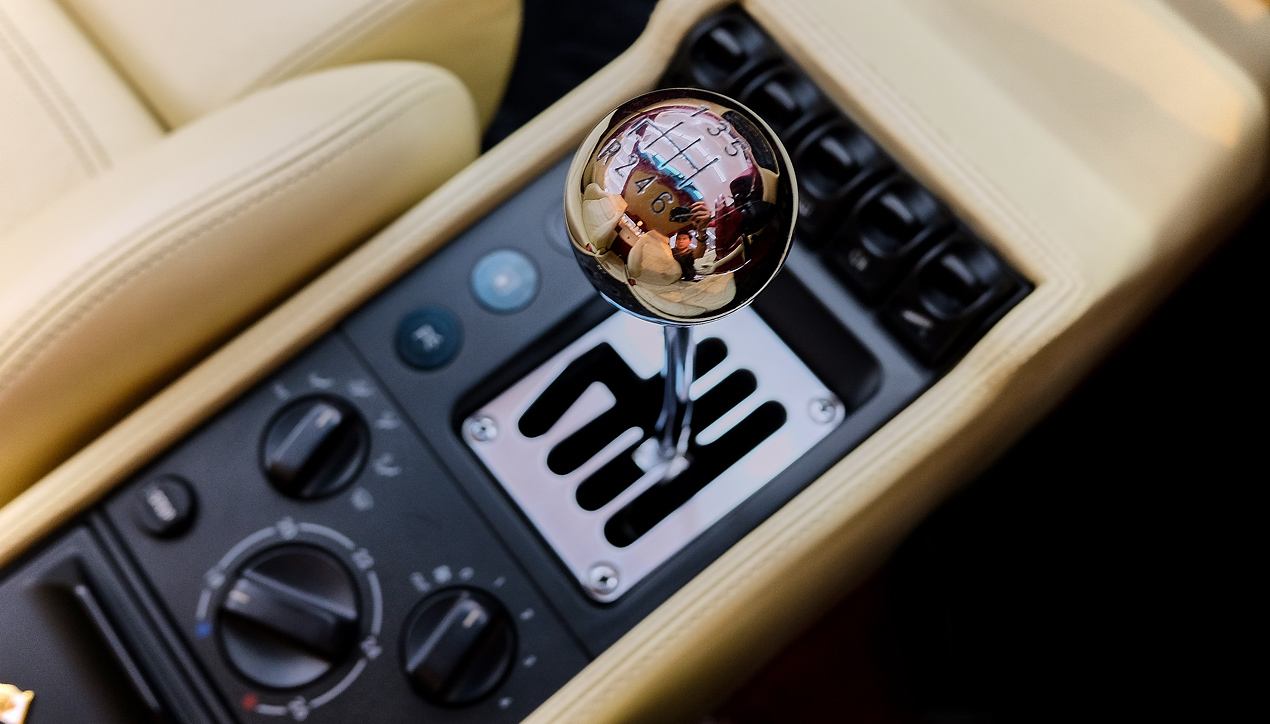Imagine a child playing happily outside on the lawn. Imagine now that they stopped doing that, went inside the house, sat down on a chair at a desk, and did some maths homework. In our familiar, pre-reversal-worldview, that would be seen by most people as less enjoyable but more productive in terms of their future.
Now imagine what it would be like to reverse this view. In this new, reversed view, playing with a ball outside would be seen as not only more enjoyable but much more productive than doing desk-based schoolwork.
[I'm still working on this new page and will fix up the wording and add more pictures soon...]
What we're used to
We have lived for at least the last few hundred years in what has essentially been a period of continuous economic growth. This has clearly been the case since the renaissance period and industrial revolution following the middle ages, and arguably (although with a few ups and downs) since agriculture was first discovered about 10,000 years ago.
This continuous and ongoing growth has become so familiar to us that it has come to underpin an almost unbelievable proportion of our thinking. This includes the ways that all kinds of systems operate and are developed — social systems, control structures such as governments, and systems of employment. It affects how essential items such as food are procured, and the inner workings of systems of thought like psychology and even religion. It has become intrinsically woven into our inner drives — our motivations for things, and our systems of deciding what is valuable, and what is not. We absolutely take it for granted that this is how things are.
The central premise of this page is that from now on, to "move up in the world", i.e. to do things that will be productive in the future, very many things will operate completely in reverse to how we're used to thinking about them.
Whatever Floats Your Boat
Our minds create "maps" of thought patterns between the actual things we experience in life, and the feelings generated by our minds by these experiences. For example, our minds generate positive feelings when the neurons in our brains are triggered by events that our minds view as positive.
At a young age, this is kind of thing is mostly instinct-based. At a young age, these instinctual mappings are mostly relevant to an ancient (and what we now call “primitiveâ€) style of life. Because that's the lifestyle that humans lived in for the vast majority of human history. For example, kids all over the world play "hide and seek" type games, and "making houses" games. No-one has to teach them to do these things, they're built-in to our DNA. As we grow up, we learn to ignore many of these natural instinctual mappings, and we acquire a set of new ones that are relevant in the modern world.
Many of the dark, depressing feelings that come from contemplating things like prepping and going back to old-fashioned ways of living are generated by this mechanism. Because we naturally want to avoid things that would worsen our position in life, our minds trigger negative emotions in relation to them.
These ideas of what constitutes moving forward are so deeply ingrained, that we cannot, or almost completely cannot, separate them out — without making an active and intentional effort to do so. We think of going “back†to the stone age, or of going “back†to before there were cars. This of course implies backwards in time, in a historical sense, but there is also a very real the idea “backwards†as being implying something that's less valuable — something inferior.
But in actual fact there's no genetic, instinctual, hard-coded, permanent and inarguable mapping of “betterâ€, “easierâ€, “happierâ€, and “superior†to many of the differences between modern life and older ways of life. There are many obvious problems with modern Western life — even apart from the major problem of it being completely and utterly unsustainable.
Take note here that the word unsustainable literally means that it cannot be sustained — in other words, that it has to end. Modern civilisation is dependent on continuous exponential growth, so it is, and could only ever have been, a temporary thing. Even if this temporary time period spans many human generations, that basic fact does not change. People easily forget this because our culture has experienced a period of continual growth that's lasted much longer than the lifespan of a human being.
So in fact, when we think about whether the latest model of new car is “better†than a horse and cart, we need to include that fact that the construction of the car depends on thousands and thousands of separate inputs, the vast majority of which are limited in quantity and therefore limited in the number of them that can ever made. Modern machinery is also 100% dependent on energy sources that must eventually run out.
In fact, evaluation of the car versus the horse and cart needs to include that along with the car comes all of the issues that this website was written to help people come to terms with. You could perhaps argue that it is “better†to be drunk than be sober, on the grounds that being drunk feels good, and that your perception of enjoyment of life while you are drunk may better than while you are sober. This is clearly only a very limited view and not one that will prove to be useful in the long term.
The entire system of the modern global economy is so large and so complicated that it is impossible to see more than a tiny fraction of it at any one time (including especially all of the complex and interrelated connections between things). Even this fact itself could be seen as and advantage of the old ways over modern lifestyles — a "simple life" is easier to understand. It might not seem easier when it's all new to you — but it might also be reassuring to know that there's less you need to learn over all than you need to learn to function in modern high-tech society.
Driving your car in reverse
Think about what happens when you put your car into reverse. You're still driving. You are still doing almost exactly the same things as when you are going forwards. Pushing the accelerator and occasionally the brake pedal with your foot, holding and turning the steering wheel, looking out for obstacles, and so on. But the car goes entirely the other way. Not think about turning around (doing a U-turn) and driving in the other direction. Now you are not going in reverse, but going “forwardâ€. However this forward is in the opposite direction to before — what was backwards is now forwards.
This is the essence of learning to reverse your thinking. It is using the things you already know how to do, the skills, the learned responses, the mindsets that are already there in place in your mind and already connected to things via your sets of mental associations. But now you are injecting certain specific changes. For some things, you will be thinking and doing the complete opposite. It's much easier to do the opposite of something than to do a completely new thing.
Some of the things you can learn from books, videos, and courses — and you'll discover others as you go. Some will be written up in detail in future on this website. Many of them work in the subconscious, and will happen for you as you keep prepping — and roughly in proportion to the amount of time you spend on it.
It's much easier to remap things in your mind (and therefore in your life) this way. By seeing it as doing essentially the same thing, but just going the other way, in the other direction (which is now the correct direction). Compare this to the idea of knowing that you cannot go any further in the direction that you have thought for your whole life was the right direction, and not knowing where to go from there.
You take certain goals, directions, and reverse them. Because now going “backward†is really going forward. What was once the perceived goal is no longer the goal, it is a dead end street. Going “forward†in the old context is really going backward, in that it will no longer get you to where you want to go, (such as moving towards happiness, a future that is good, and so on) So you learn to reverse certain things. Just like with driving the car the other way, most of what you are doing in the actual motions of driving are the same things you are used to doing. You are using the same mind states that you once thought of as progress, the same feeling associations, but reversing them so that you are using them to drive you in the other direction, which is now “forwardsâ€.
Some of the Things That Will Reverse
A great many things will be different in the post-peak world. Some of these are things that most people have come to think of as so normal, so much taken for granted, that they do not even really think of them at all — in the same way that a deep-sea fish would find it hard to imagine a life out of the water. The difference between us and the fish, though, is that the fish is biologically tied to living in the deep sea in a hard-coded way, in such a way that the fish cannot possibly survive in any other environment. Humans, on the other hand, have shown themselves to be one of the most adaptable species the Earth has ever known. We have adapted to an amazingly large spectrum of possible habitats, of climates, of living conditions, of sources of food and other critical resources, and so on. Similarly, humans have shown themselves to be one of the most diverse species in terms of living behaviour, of psychology, of habits and ways of living. For example, some humans give their lives to serve others as martyrs while others are murderers, or even cannibals. Some are monogamous all their lives, or even celibate, while some have thousands of partners. Some are vegetarian while some eat meat and all kinds of other foods. Most other species show a much more narrow range of characteristics. It is this variety and adaptability that we will draw on in the times to come, as our living situations change as a result of the reversal.
Previously, basic things like water, housing, warmth, the simple pleasures of life, seemed less and less important all the time. The increasing levels of complexity, specialisation, distractions, technological advancements, and so on, all contributed to us taking more and more for granted. In a way, this actually contributed to less and less enjoyment of things. The way this happened is that because the mind kept encountering new things that were able to trigger feelings higher levels of importance, the level of importance (which includes things like meaningfulness) of almost everything else in your previous life became lowered.
In the future, this will reverse, so that in the future you will be more and more able to experience enjoyment from more and more basic things. Rather than becoming more and more locked into the “throwaway society†mentality, many things will become more and more precious. In a lot of ways this is actually a good thing, and it will increase your enjoyment of life (with other things being equal).
Of course all other things are not equal, that is, in the future many other things will be different to how they are now. Which means that I am not suggesting the above point is supposed to make you think that your enjoyment of life overall in the future is guaranteed to be greater than it is now, since there are many other factors at play. However, if you learn to prepare well, especially in terms of the inner work and changing your view of the world, then you can expect a definite chance (and perhaps a very good chance) that your enjoyment of life in the future will be greater than it has been in the past.

We've had hundreds of years of continuous economic and consumption growth. The imminent reversal of this means that many things are completely backwards to how they seem, and to how we're used to thinking of them. Photo by Nick Youngson / R M Media Ltd / Alpha Stock Images.
What are the Changes to Expect?
As you read through this section, keep in mind that many of the following trends are just that — trends. What I mean by this is that the impact of them will not be something that happens all at once, but a general trend that will continue from the next few years and onwards, into the entire rest of the future.
Perhaps the biggest change will be the reversal of global economic growth. This will have far ranging changes in a great many areas, including the following:
- There will be less material resources available in total as each year passes by, rather than more (as we have gotten used to).
- Resources include things like the ability to construct new housing and other materials, therefore people will live in smaller and smaller houses, on average, rather than larger, with more people in each house, as time goes on. Similarly the availability of many of the high-tech and other lifestyle add-ons that we have gotten used to will decrease each year, rather than increase. The same goes for all (or at least most) other forms of materialistic wealth.
- This will have an upside in the sense that people will learn to place less importance on materialistic goals — as these will become much less available, and other, more important goals, will take precedence.
- Capitalist systems of government are based on growth, that is, profit. Therefore it is highly unlikely that our current systems of government will be able to exist in the form that they currently are. Arguably the main benefit of capitalist systems of government in the period leading up to a massive and permanent crash (like we are in right now) is the extent to which they promote self-reliance and small-group reliance over reliance on large collectives like the state.
- Communist/socialist systems of government, despite their ideals and their claims, are also based on continuous growth. So they will do no better than capitalist systems in a permanently contracting economy. In some ways they will do worse, as they tend to promote a lack of individual effort, and a dependence on "the
system" (which will eventually no longer exist). In the initial stages of a permanent collapse, the more left/socialist systems may do better, as the system can take care of those who aren't able to take care of themselves. This will only continue for as long as the system itself both exists and is able to provide for these needs. In the later stages of a permanent collapse, when this is no longer possible (as the systems themselves collapse), there will be much suffering — and especially for those unable (for various reasons) to take the initiative towards greater self-reliance.
- Therefore, it can be argued that all civilisations (as opposed to small tribes/villiages/etc that mostly live, or lived, by hunting and gathering and simple low-tech agriculture, etc.) require growth on an ongoing basis to forestall collapse. I can't think of any historical precedent that contradicts this (that all large civilisations, no matter what type of government, require ongoing growth to keep them in existence).
- The logical outcome of this is that in very long-term (or permanent) period of negative growth, governmental structures and social systems will eventually become much smaller and more localised.
- Stock markets, and other forms of trading markets, are largely dependant on ongoing growth for their existence — as nobody would invest unless there was an expectation of future profits. When it becomes obvious that ongoing economic growth is a thing of the past (that is, the pre-reversal world), many people will pull all their money out of the markets as quickly as they can. The whole concept of investment (in a financial sense) requires some form of economic growth. This one fact is a large part of the reason that this kind of thing (and the benefits of prepping overall) aren't talked about much in the mainstream media.
- Companies exist to make a profit. If a company makes a loss for a prolonged period of time, it will cease to exist. Even more dramatically, without the potential for profit (that is, if the company is expected to lose money in the future, ad infinitum) it cannot exist. Most jobs in the current economy are provided by companies, who employ people for the purpose of assisting the company to make a profit for its owners (its shareholders).
- Most jobs in the current economy of first-world nations (and the trend has been towards this in other nations) provide what could be described as “luxuries†— they are not directly related to any of the basic human needs such as providing food, water, shelter, health, and defence.
- The monetary system of most countries (perhaps all modern currencies, for all I know, certainly most of them) is based on debt, and requires ongoing growth. That is, the money is created in the form of debt, which needs to be repaid in the future plus interest. This means that at any given moment, there is the need for more money in the future (to repay the debts, plus interest) than there is existing in total in the whole economy in the present. This means that the money supply must continually grow, otherwise there is simply not enough money in existence to repay the debt (plus interest) that is in existence. Without sufficient growth, the currency will collapse, as has happened in many third world countries. This means that there will need to be major adjustments to monetary systems.
- There will be conflicts as people who are in positions of control within the currently existing large, centralised systems (which include countries and corporations) will fight to maintain the position of the systems that they currently serve and are rewarded by.
- Many of the systems which currently exist (including those mentioned above) are only really stable in a situation of growth. That is, they will be much less stable, and eventually unstable to the point of ceasing to exist, in a permanently contracting economy. Like with all unstable systems, the rate at which this happens is very difficult to predict. It's not yet clear how possible it will be for a gentle “energy descent†where things gradually change along the lines of what is being described here. That is, some or many (or most) of these changes may happen slowly, or may happen extremely rapidly.
One of the most important changes will be the reversal of the trend towards increased centralisation. This has come to be known as “globalisation†as the world is now so centralised that it consists of a global economy. The reversal of this trend will have far-ranging impacts, including the following:
- Relationships between people will become more important as time goes on, rather than less important.
- Of these, relationships between people in your local area will become more important as time goes on, rather than less important.
- In the Christian Bible, Jesus Christ says that greatest commandments are to love God and to love your neighbour as yourself. People usually interpret this as meaning we should love all other people as we do ourselves — but what he says is to love your neighbour as yourself. He then tells a story about a good deed done by someone belonging to the neighbouring tribe/race (the Samaritans).
- Food and other resources will come from places closer and closer to home as time goes on, rather than further and further away.
- The skills that people have (and will be required to have) will become more generalised as time goes on, rather than more highly specialised.
- Groups that people aggregate into, and see themselves as part of, will become smaller, and more localised, rather than larger and more distant.
There are certain things that you will need more of than you do in the average modern Western life:
- Physical health and fitness will become more important as time goes on. In the pre-reversed world it became less important as time went on.
- Generality of a broad range of skills will be useful, instead of a highly specialised set of skills within a narrow area.
- After the reversal, there will be more — much more — opportunity for adventure.
One of the major factors in whether you feel happy or depressed is a feeling of going forwards or backwards
It is not how much you have that determines your happiness, but if whether you perceive that you are slipping back or moving forward. Note that it is your perception of this that counts, so it is possible to feel good about things that should be depressing — and feel depressed, bored, stressed, angry, or anxious about things that should be enjoyable, positive, interesting and exciting.
Another important contributing factor to happiness is where you see yourself in relation to other people. And where you expect to be in the future. These factors also apply to your levels of stress versus relaxation.
This is the message of this web page about reversal: Try to master the mind trick of turning your thoughts around (i.e. you reverse them). When you feel miserable about "going backwards" in life, due to the results of the upcoming economic situation, remember that things are reversed now, and going backwards is really going forwards.
Incidentally, Christianity (along with some other religions) also teaches us this. That is, the deliberate rejection of many of the usual goals of society that are presented (and thought of) as the things we need to bring us happiness. And deliberately seeking out and embracing the opposite (reverse) of those things. This is one of the very biggest reasons why Christianity and prepping combine so well together.
For parents
In the old, growth oriented model of life it was generally helpful to your children to encourage them to move out of home, perhaps to move into or closer to the city, and get a job in the modern economy. Also it was helpful to get a good education in the Western sense.
These highly specialised fields are only of value within the structures that give them value. Instead, reverse this. Think of it as the old model, that is now (or very soon to become) obsolete. Now, anything that promotes the new, reversed goals is helpful to your children in the long-term.
Enduring hardship
The most important thing of all to forget — to leave behind — is the idea of Western materially oriented specialisation as the correct direction, the direction that will lead you to happiness and prosperity.
Consider the urbanisation of China. Countless millions of Chinese are motivated by this urbanisation (and its promises) to move from traditionaly family farms to the city, and then to willingly endure extremely long hours of virtual (or actual) slave-labour. There are many documentaries that have been made to highlight this aspect of how our material goods are produced. Such as one I saw recently about a Chinese girl who worked in a jeans factory.
They do this because in the pre-reversal view of the world, this is progress. People will endure all kinds of hardships not only voluntarily but happily, eagerly and even excitedly — if in their worldview they are doing it in the name of progress, and in the name of doing “goodâ€. This “good†is only ever in relation to a particular point of view, and the point of view can clearly vary extremely between one person and another. It can also vary extremely over the course of one person's life.
Looking to the future, this all becomes reversed compared to the way we're used to thinking about it — and from now on the aim is to use this determined, enduring part of our human makeup to motivate us towards useful and productive activities in the new, low-tech locally-dependent (rather than globally dependent) future.
Examples of values and beliefs that will reverse
- Growth is good.
- Expansion is good.
- Economic growth is not only good but completely essential.
- New, modern things are good, and old things are worth less.
- The city is a source of prosperity.
- Borrowing and debt are good.
- “Greed is goodâ€.
- Helping others includes helping them to follow the modern Western globalised model more intensively.
- Increasing your alignment with the modern Western globalised culture will benefit your future.
- Increasing your alignment with the modern Western globalised culture will make other people like you more.
- Increasing your alignment with the modern Western globalised culture helps other people and the world.
- Increasing your alignment with the modern Western globalised culture makes you more attractive sexually.
- Increasing your alignment with the modern Western globalised culture gives your children the best chances in life.
Some more effects of the reversal
- Real, actual, local human connections/interactions will become more important than “virtual†ones, or ones based on abstracts such as paper qualifications, or money.
- Practical skills (that have value in and of themselves in terms of you and your immediate acquaintances being able to use them) will become more important than skills which only have value within a large urban system.
- This is a very different perspective, and of course will therefore require some considerable adjustment. Which will naturally take some amount of time and effort to adjust. This effort can be voluntary, in terms of preparation, or it can be forced, in terms of waiting until the coming changes start to occur and force you to adjust.
- The trends towards increasing dependence on faraway things, and increasingly less self reliance, will be reversed. In the future, compared to the pre-reversal world, it will be beneficial to become more independent, more self reliant, to rely more on your own power, and also on local connections rather than distant, globally sourced and technology and oil powered ones.
- There is so much of value that has been lost in the centralisation (urbanisation, modernisation) of human societies. Much of this can potentially be recovered in this approaching phase of human and planetary evolution. As an example, you could check out the book “Ancient Futures — Learning From Ladakh†by Helena Norberg-Hodge.
- People have gotten into the habit of feeling optimistic, happy, and excited about certain images, scenes, ideas, thoughts, sights, feelings, that are triggers for feelings of “moving forwardâ€. For what we have gotten used to thinking of as being beneficial. The idea here is that in the future many (perhaps most) of these triggers will change — reverse even. And there will be completely different things that people will come to think of as bringing happiness, optimism, excitement, and so on.
- The earlier you can catch on to what these new things (the things that will be useful/valuable in the future world situation) are going to be, and start directing your life in that direction, the better off all of us will be. That is, you learn to still view your life as “moving up in the worldâ€, but in the climate of what the world is to become, rather than what it has been. As the world events and changes start to happen, you will end up doing many of these things whether you consciously intend to or not. But if you consciously intend to, you are going with the flow, making it much easier for yourself — rather than trying to swim against the tide by going in the old direction. The old direction was towards increasing specialisation and dependence on external and faraway things. For example, the electricity supply, the oil supply and the system of international trade that kept goods from the third world coming in on the boats and the planes for an ever-increasingly cheap price. The earlier you start to prepare for the changes, the more you will be like an investor in the financial markets who gets in early at the start of the market boom.
Living in the present moment
Another benefit of a post-reversal economy will be that things in the present will be of increasing value, rather than decreasing. Instead of things continually devaluing (meaning that you always have to get newer and better things to be happy), things will increase in (perceived, psychological, emotional, and actual) value.
When you think that things are always going to be better in the future, why bother with what you have now? If there are things that you don't like about the present (and there always will be in life), in the pre-reversal world you could easily focus on one or a few of the countless numbers of appealing possible futures. This is a drug-like effect, and, like so many drugs it has the side effect of reducing your level of feeling and realness and appreciation for life.
Investment in a reversed world
What is there to invest in (without a capitalist system, or any kind of growing financial system)? In the pre-reversal climate of increasing centralisation and economic growth, investment in the form of money was increasingly possible, and valuable. (This includes money itself and also assets with purely monetary value, such as shares that pay dividends and can be sold on the stock market). However there are many other forms of investment.
Anything that you acquire that will improve your future position in life is an investment. In the pre-reversal financially dominated world, if one form of monetary investment looked like it was going to be bad, the obvious path of action would be to sell in (that is, get as much out of it as you can) and then re-invest in another type of asset. This is exactly the same as what should be done in a post-reversal economy, only now the end of ongoing financial growth means that the types of investments to consider are much more broad and do not have such a direct connection to financial currency.
The actual benefit that people get from money is the ability to act in certain ways. Some people call this your "personal power", which is defined as your ability to act, i.e. your ability to do things (and buy things, and command things, etc.).
Money is just one possible form of this. There are many other forms. In the pre-reversal world, when you made a financial investment, what you were actually doing was investing in your own personal power. This is something that you will always be able to do, irrespective of whatever happens to the monetary/financial system that we're used to relying on in the modern world.
Other forms of personal power are your health, your knowledge and skills, your social connections, your social status, your ability to influence people, your connection to the present, your attractiveness, charisma and “mojoâ€, and many others.
Compound Interest
All of your preparations for a reversed economic future act exactly like compound interest in the familiar financial economy. Everything relevant that you do to prepare adds to your long-term level of personal power. This is the equivalent of money in the bank in the old economy.
Also, a great many of these things reinforce each other in a way just like compound interest. Compound interest is where the return you get on an investment (the interest) is paid back into the investment. So, the larger it grows, the more there is to feed its growth, which increases not only its size but its rate of growth.
Similarly, so many of the life changes you make and the skills, thought processes, and emotional associations that you develop will add to the effectiveness of many of the other changes. In this sense, your prepping "compounds" just like money in an exponentially-growing investment would.
Remapping your mental associations
As you're making changes to your life (and this applies even if the changes are forced upon you), the essence of the reversal technique is to re-map ideas and emotions from the old way of thinking into the new.
For example, instead of money and financial investments such as superannuation, you will have the post-reversal equivalents. Exactly what some of these equivalents are to be will depend on the particular way that future events play themselves out. Some things, like water, food, certain social abilities, and certain skills, are guaranteed to be important. These are your metaphoric "money in the bank".
At least part of (and perhaps all of) the benefits that you're used to getting from money will come not from actual money (which may be completely worthless by then), but from these other money-equivalent/replacement things instead.
After you start to make enough successful changes, you can even earn “interest†on them while you're doing nothing. This is true at a physical/material level and it's even true at an inner psychological level. Once the right "threads" of thought patterns are in place in your mind, they'll just go on in the background, maturing, and associating themselves to other thoughts and parts of your mind.
This is the equivalent of a financial investor who earns money on his investments all the time, day in and day out, when they're asleep, and also when they're awake lying on a beach on a tropical island.
Cover image by KULLAPONG PARCHERAT / Shutterstock. This red Ferrari F355 Berlinetta is an Italian sports car.
Related articles
Prelude to Catastrophe The world had been teetering on the edge of conflict for years. Political tensions, economic rivalries, and territorial disputes had escalated, creating a global atmosphere of distrust and fear. Nations fortified their borders...
Surviving the collapse of modern society would require a mix of practical skills, knowledge, and mindset. Here are some of the most important skills: Basic Survival Skills: ...
Nuclear Winter
A nuclear winter is a theoretical scenario that would follow a large-scale nuclear war, characterized by severe and prolonged climatic cooling and other catastrophic environmental effects. Here's what it might be like: ...

 Welcome to Prepping.com.au, the new web magazine.
Welcome to Prepping.com.au, the new web magazine.
 What is Prepping? A guide for normal people to get started.
What is Prepping? A guide for normal people to get started.
 How to use this site. When all else fails, read the instructions.
How to use this site. When all else fails, read the instructions.
 This is your mission, should you choose to accept it.
This is your mission, should you choose to accept it.









